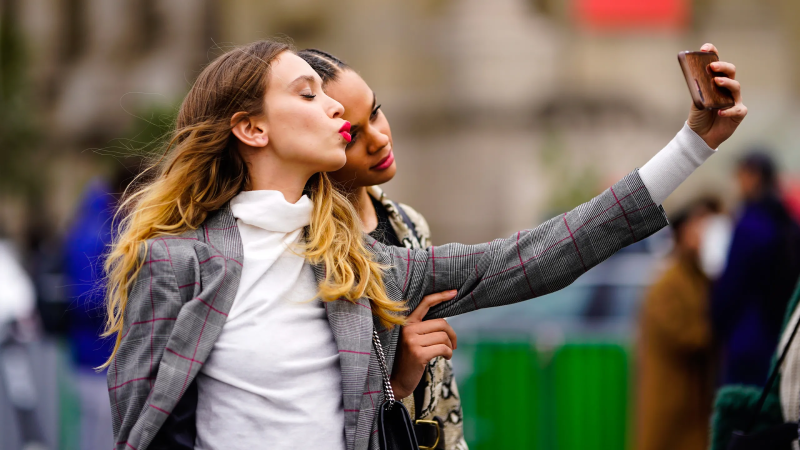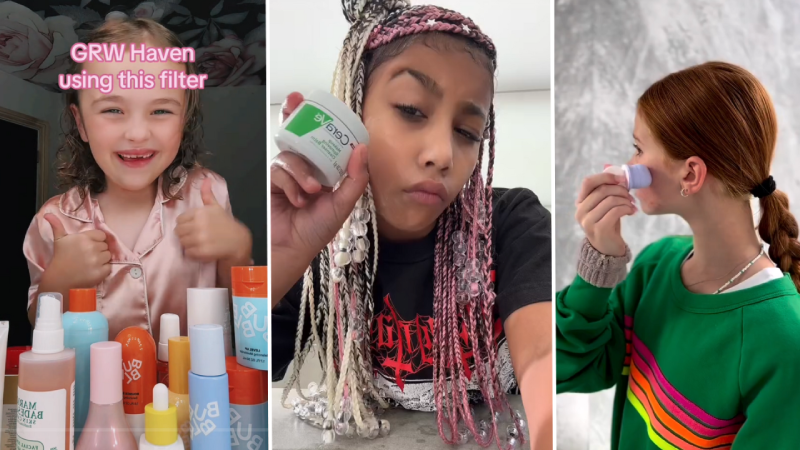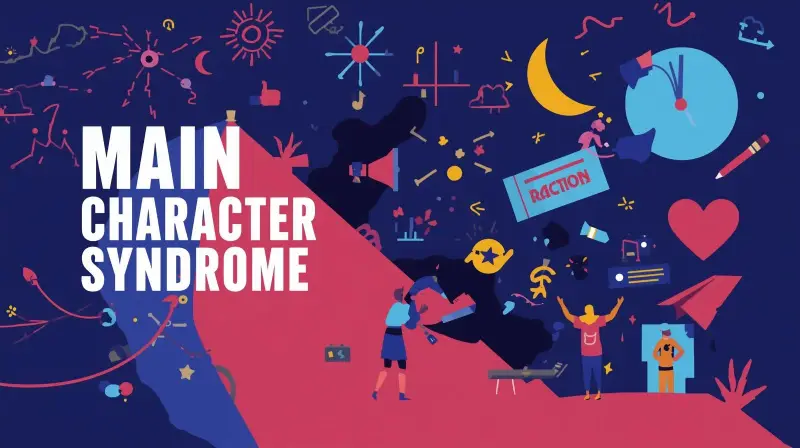Influencer marketing has become a buzzword in the evolving era of marketing. Influencer marketing significantly impacts brand image and consumer decisions, whether it is about advertisement or selling products and services. It had a substantial impact as businesses worldwide started joining this hip trend regarding the consequences they had to face. Influencer marketing is a two-edged sword, as any misleading information can cause harm to the brand and your business reputation. In this Gen-Z era, everyone claims to be an influencer; proper assessment and reevaluation are essential before trusting your product or services to be promoted on social media platforms.
Brands partner with influencers to expand their audiences, enter niche markets, and develop organic consumer connections. However, a darker side lies behind the glamorous facade of brand partnerships in fashion influencer marketing. The other side of the coin is worn out by this sort of abuse, including misleading advertising, the creation of unreasonable aesthetic standards, ecological and social impact, and dishonesty by the industry. By diving deeper into these complexities, we understand ethical dilemmas and this ever-evolving area’s social and ethical responsibilities. We must remember that celebrity endorsement and influencer marketing are two different things.
Negative Impacts of Fashion Influencer Marketing
Lack of Authenticity

A business depends on its reputation and brand perception; a slight mishandling can cost a lot of money. Some influencers promote things exclusively for financial benefits. Due to a lack of authenticity, they cannot drive organic connections. Influencers who are not genuine about the product can mislead their followers and erode their trust over time. Followers always seek genuine recommendations rather than promoting products just for monetary benefits. When a brand connects with an influencer, they become the faces of the brand for their followers. Any derogatory comments or offending activities they do can lead to a massive backlash from communities. Many examples exist of influencers losing their credibility because of their behavior, statements, or failed posts on social media. So, any harm to their image also harms the brand they endorse. From an ethical point of view, it is deceptive to endorse products that the influencer doesn’t use. Any misleading claims about a product can also harm the brand image. For example, PewDiePie, the most subscribed and viewed influencer on YouTube, got his reputation tarnished after making anti-Semitic jokes on his channel. This led to one of his most prominent collaborators, Walt Disney Co., cutting all ties to the influencer due to the media frenzy.
Shallow engagement

The craze to be an influencer drives most people to adopt unethical ways to increase their followers. Their number of followers constantly measures an influencer’s success, likes, and views on each post. Influencers have fake followers to increase their follower count; they serve no purpose as they can be ghost followers, which don’t interact with accounts, or bots that perform automated functions like retweeting, sending friend requests, or posting fake and spam comments. Some influencers focus on gaining followers rather than developing connections with them. These influencers may have a large follower base but low engagement rates—this type of influencer wastes business resources, which results in ineffective campaigns.
Controversy Related to Sponsorship

When working with a brand, influencers must disclose and notify their followers of paid promotions or sponsorships for payments or free products. This shows their authenticity as the products are not genuine and are only for promoting purposes. While some influencers test these products before recommending them, they are misleading as some products might cause harm or require consultation before usage. Sometimes, influencers cannot incorporate the real message a brand wants to promote, painting unrealistic beauty standards and straying from the truth. Some brands are even accused of using deceptive tactics to manipulate search engine rankings, including paying influencers to promote their services without disclosing the financial relationship. Such practice of unethical issues within the influencer marketing industry opens a broader discussion about the need for greater transparency and authenticity.
Influencers promoting harmful products

Influencers must often remember to research what they promote on their social media. There are many cases where influencers are caught red-handed promoting fake products, illegal sites, and unapproved dietary products, which can cause potential harm or need consultation with doctors before intake, such as diet teas, random protein shakes, or products unapproved by the FDA. This can hurt the physical and mental health of consumers. Such was a case of the pink sauce controversy. When a Miami-based chef, Veronica Shaw, promoted her “Pink Sauce” on social media, she received backlash due to food safety and labeling. Some customers noticed the inconsistency in the sauce’s color and the products’ poor packaging.
Promoting illegal content also tarnishes the image of an influencer and, thus, the brand they promote. Sometimes, lousy advertising can lead to public backlash. We are all aware of the marketing scandal related to Kendall Jenner and Pepsi. In 2012, Kendall Jenner was featured in a Pepsi ad, criticized for undervaluing Black Lives Matter. Some argued that the ad suggests Pepsi could solve all the problems related to police brutality.
Environmental Concerns

The fast fashion industry thrives because of its fast production cycles, fleeting trends, and disposable clothes; hence, it is a breeding ground for consumerism and waste. Influencers, through their endorsement and promotions, shape consumer behavior and perceptions of environmental sustainability. Partnerships with irresponsible or unethical brands may lead to environmental degradation without the intended goal in mind, leading to excessive resource depletion, pollution, and overflows of landfills.
Besides ecological concerns, other ethical considerations concerning social and cultural aspects of influencer marketing exist. Influencers are like role models to their audience; this makes them responsible for only collaborating with honest and ethical brands. Even then, there are times when influencers choose to back poor labor practices, lack of cultural sensitivity, or such discrimination wherein the industry’s ethical code is raised. The authority dynamics in influencer-brand relations deserve a careful balance between obligation and transparency to rule out deceit or mislead.
Incompetence and greed

Influencer marketing comes with a considerable budget and a need for more professionalism. Influencers often disregard the central ideology, content quality, and guidelines provided. They must be more engrossed in creating unreasonable aesthetic standards, fail to deliver proper content, and breach brand guidelines. This can cause harm to the business and brand’s reputation. A brand should make cautious decisions when selecting the influencer to partner with. By analyzing an influencer’s old connections and collaborations and evaluating their audience engagement, brands should be able to choose the right influencer to partner with and steer clear of those who might abuse the relationship. Sometimes, influencers charge way more than the provided payment or never respond after dispatching free products they are meant to promote on their social media page. Delays in content production also harm product campaigns. Imagine you need to launch a product in May, so you want early promotion and pay an influencer with a massive follower to excite the product. However, due to the negligence of the influencer posting it just before your launch, your campaign could have been more successful. Influencers who lack professionalism should be avoided at any cost.
Effective Influencer Marketing
Do Your Research

Before approaching an influencer for sponsorship or brand promotion, any brand should investigate its record of brand partnerships, scandals, or history of fake followers. They should reevaluate their authenticity and ensure their recommendations are based on genuine experience. Consumers must research the products they are purchasing so that they won’t fall for misleading product endorsements.
Setting Clear Guidelines

Brands should set clear guidelines, promote ethical behavior, and ensure transparency while promoting a product or service. Transparency with sponsored content, partnership disclosure, and genuine endorsement are paramount for the credible influencer marketing environment. Genuine endorsement from influencers who believe in and use the brand’s product or services promotes trust and credibility. Clear guidelines enhance a brand’s values, ideology, and objectives, ensuring an effective collaboration.
Stop Promoting Unrealistic Standards
Influencer marketing often leads to the promotion of unrealistic beauty standards and luxurious lifestyles. This constant showcase of affluence promotes a culture where individuals, especially youngsters, feel compelled to attain such a lifestyle. Influencers should showcase reality and promote healthy and minimalistic lifestyles. An influencer should be authentic, demonstrating the pros and cons of any product they endorse. The rapid trend changes, further reinforced by influencers, produce a culture of overconsumption and waste. This is devastating for the environment and responsible for the continuation of wrong values and feelings of inadequacy among consumers.
Conclusion
Fashion influencer marketing is a double-edged sword in that it promises great opportunities but is challenging to solve. The dark side of brand partnerships around the issue includes the ethical, environmental, and societal stubbles that should be addressed and resolved carefully. At the core of these problems lies the authenticity problem. Influencers can make or break a brand’s success by convincing buyers to buy and create an impression. Thus, authenticity is a code of ethics for successful influencer marketing.
Similarly, prioritizing financial gains over authentic connection to products and companies may lead to a gradual decline in trust in the long run. Trust is the primary building block in the enduring relationship between brands and their audiences. In addition to the ethical aspect, morality is also a fundamental part of brand collaboration. Influencers should be ready to collaborate with brands that have set goals to work according to ethical standards, care about what is right, and not give promo to businesses involved in exploitative issues or unethical behaviors. Transparency and truthfulness of endorsements form the fundamental credibility and trust consumers will have in marketing campaigns.




